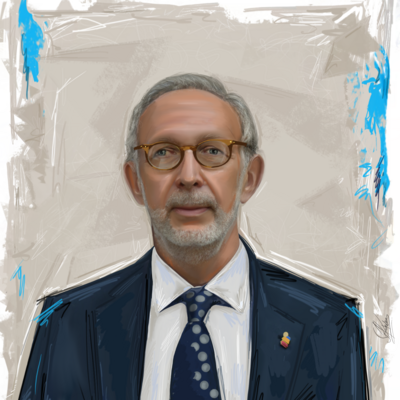Register to continue reading for free
Maria José Ferreira from CTCP : BioShoes4All aims to position Portugal to lead in the development of sustainable solutions

We spoke to Maria José Ferreira, Director of Research at CTCP and Coordinator of the BioShoes4All project. We discussed some of the current environmental issues affecting the footwear industry and how Portugal is positioning itself to address these sustainability challenges
Maria José Ferreira, Director of Research at the Footwear Technological Centre (CTCP) and Coordinator of the BioShoes4All project, is at the forefront of sustainability efforts in the Portuguese footwear industry.
The project aims to position Portugal as a leader in sustainable footwear solutions, addressing environmental concerns while promoting innovation and competitiveness.
Production
With over 20 billion pairs of shoes produced globally each year, “the current production and consumption volumes place the footwear sector under intense scrutiny”, Ferreira shares. While production levels may seem reasonable when distributed across the global population, disparities in consumption highlight the potential for further growth.
According to her, “Europe and North America, with only 14% of the world’s population, consume about 30% of the production (in 2022)”. This equates to six pairs per person annually, prompting discussions on responsible consumption and regulatory measures.
Encouraging investment in quality, timeless designs and extending the lifespan of footwear through maintenance and recycling are key strategies to mitigate excessive consumption and promote sustainable production in Europe. “All these measures should help to limit excessive consumption and promote a change in the type of products consumed”, Ferreira notes.
Greenwashing
Sustainability claims in the fashion and footwear industry have become widespread, but many lack concrete evidence. Transparency is essential, and companies must support their claims with verifiable data through independent testing and certification. However, “such certifications are also becoming a business, so we must work to ensure they do not contribute to greenwashing", Ferreira states.
“Tests and/or certifications”, – she continues – “should be carried out following protocols defined in national, European and international standards”. Products should clearly indicate their origin, material composition and environmental impact. Digital solutions such as QR codes or NFC labels can facilitate access to this data, ensuring greater accountability and informed decision-making.
Climate and Energy
The climate and energy crises are pressing global concerns, and the footwear industry has a role to play in mitigating their impact. By incorporating sustainability into every stage of the production and consumption cycle, the Portuguese footwear industry can help drive the shift towards a circular economy and carbon neutrality.
“If we produce quality footwear that stays like new for six, seven or more years, if we opt for renewable materials that our planet can continuously produce and regenerate, if we choose to recycle and circulate production materials or used footwear, if in each of our production and consumption decisions we consider their environmental and social impact, we can make an important contribution”, Ferreira asserts.
Opportunities
Portugal has been recognised for its expertise in footwear production. The industry has successfully adapted to market changes in the past and is now well-positioned to address new sustainability challenges. Ferreira asserts that “the customers and regulators in the countries in which Portugal export want visually appealing products that respect the environment and are made under fair working conditions”.
To meet these expectations, the Portuguese footwear sector must “lead the way in the development of real and proven sustainable materials, footwear, leather goods and technologies” that minimise carbon emissions, water usage and energy consumption.
Integrating material producers, component manufacturers, software developers and footwear companies into a cohesive ecosystem provides a strategic advantage towards sustainability.
BioShoes4All
The BioShoes4All project represents a collaborative effort in the Portuguese footwear sector, involving 70 partners, including research institutions and companies across the supply chain. “From micro to large companies, they all seek to make a radical change to the sustainability of materials, chemicals, manufacturing processes, business models and final footwear and leather goods products”, the project Coordinator shares.
Supported by the Portuguese Recovery and Resilience Programme and the European Union’s Next Generation funds, “BioShoes4All is the largest project ever undertaken in our industry”. With the broad participation from industry stakeholders and coordinated efforts by CTCP and APICCAPS, the project has “significant potential for transforming the Portuguese footwear sector and ensuring it has an international impact”.
Future
Emerging trends in footwear production focus on lightweight, recyclable materials derived from sustainable sources. Innovations include using “by-products of human or animal foodstuffs, including rice, cereals, olive pits, chestnuts, mussel shells, vine cuttings and algae among others that reinforce or create new materials, insoles and soles”, Ferreira shares.
Leather tanning processes are incorporating natural extracts, while recycled leather and production waste are being repurposed into new components. These advances reflect a growing emphasis on environmental responsibility, positioning the Portuguese footwear industry at the forefront of sustainable solutions.
Image Credits: Art by Sofia Pádua








